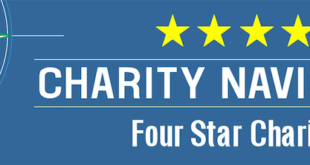In its usual form, the case for privatizing public parking invokes the basic economic principles of supply and demand. This case is usually restricted to private parking lots and garages. For example, Walter Block discusses how market incentives can drive parking rates to rise to eliminate shortages here. A more radical proposal is the privatization of public parking altogether. A common form of public parking that libertarians can target for privatization is free...
Read More »It’s Time to End Squatter’s Rights
Last month, New York City homeowner Adele Andaloro was arrested after changing the locks on a house that had been seized by squatters. According to The New York Post: "Andaloro was charged with unlawful eviction because she had changed the locks and hadn’t provided a new key to the residents. The residents, however, are squatters.Fortunately, Andaloro's arrest was filmed and went viral, reviving an ongoing debate over squatters "rights," under which trespassers can...
Read More »When Proxy Wars Come Home
If we look long enough and hard enough, we might find an example of something in the US is not by the state, of the state and for the state. But it’s becoming more difficult.We live, if we live in the US, within a reverberating echo chamber of the bits of US foreign policy we can observe and understand. Those bits relate mainly to trade wars, monetary wars, and proxy wars. Each of these overtly externally directed “wars” echo in American streets and towns, across...
Read More »Guido Hülsmann’s Gratuitous Intellectual Donation
Abundance, Generosity, and the State: An Inquiry into Economic Principlesby Jörg Guido HülsmannLudwig von Mises Institute, 2024; 452 pp.It is rare to encounter a book that has the potential to reshape the way we look at economics, but Guido Hülsmann has done exactly that in Abundance, Generosity, and the State. Hülsmann is one of the leading theorists of the Austrian School, but he has always looked at issues in an original way, and that quality is manifested...
Read More »Price Inflation Comes from Government, not from “Excuseflation” or “Greedflation”
Followers of the Austrian school of economics know that the term inflation refers to increasing the quantity of money or money substitutes. The result being a rise in the price of goods and services or a fall in the value of money. But, in the modern era, this rise in prices is called inflation and as Ludwig von Mises wrote, “This semantic innovation is by no means harmless.” The semantic change has people looking everywhere but where they should to blame for higher...
Read More »No, the Brazilian Government Should Not Subsidize Carnival Festivities
Approximately forty-nine million people joined Brazil’s carnival festivities this year, spanning five days from February 9 to 13. Originally Catholic, the holiday has evolved to have numerous parades, known as “blocos” in Portuguese. Like other major events such as the Super Bowl, there’s consistent pressure for public funding. The Brazilian government, known for its history of high public spending, regularly subsidizes carnival parties through various channels...
Read More »Foreign Aid and the Politicization of Economic Life
The conservative government in the United Kingdom champions the view that giving more foreign aid to developing countries will fuel economic growth that, as a bonus, will help to resolve the ongoing migration crisis. The international development minister has explained the government’s reasoning, namely that “giving development aid to countries was morally ‘the right to do,’ but a core argument should also be that it prevented refugees and migrants heading to...
Read More »Big Agriculture Protectionism led to the Amos Miller Raids
The raid on an Amish family farm is the direct result of government protectionism of big agriculture through needless and cumbersome regulations.Amos Miller is an Amish farmer in Pennsylvania who has become a thorn in the side of the State of Pennsylvania and the federal government for his selling of raw milk and other unregulated products. Miller first came to the attention of the Food and Drug Administration in 2016 when they claimed his milk was linked to several...
Read More »Big Agriculture’s Protectionism Targets the Amish
The raid on an Amish family farm is the direct result of government protectionism of big agriculture through needless and cumbersome regulations.Amos Miller is an Amish farmer in Pennsylvania who has become a thorn in the side of the State of Pennsylvania and the federal government for his selling of raw milk and other unregulated products. Miller first came to the attention of the Food and Drug Administration in 2016 when they claimed his milk was linked to several...
Read More »Who Will Take Care of the Roads? Why, The Coercive, Substandard, and Monopolistic Government Department, That’s Who
Tu ne cede malis, sed contra audentior ito Website powered by Mises Institute donors Mises Institute is a tax-exempt 501(c)(3) nonprofit organization. Contributions are tax-deductible to the full extent the law allows. Tax ID# 52-1263436 [embedded content] Tags: Featured,newsletter
Read More » Swiss Economicblogs.org
Swiss Economicblogs.org

